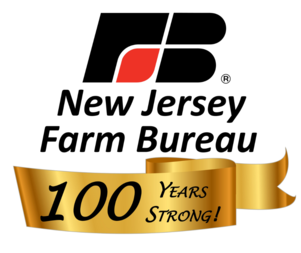Agriculture industry keeps us the Garden State
By Steve Sweeney
Like many New Jerseyans, I love this time of the year because I can visit my local farmers market or farm stand to pick up locally grown fruits and vegetables that are one of our state’s greatest gifts. This spring, as we work to emerge from the ravages of COVID-19, I am particularly thrilled to enjoy this bounty. It is the surest sign that New Jersey is returning.
From our beloved Jersey tomatoes, to cranberries and corn, blueberries and peaches, and a vast assortment of other in-season crops, sharing this abundance with neighbors and friends brings me great joy. And as I share, I always remind folks that these riches are the result of a lot of hard work. In South Jersey, and other agricultural towns, we know that the agriculture industry and farming community as a whole are long-term and sustainable assets to our state. New Jersey farmers are a hearty breed, both dedicated and resilient. They have long been a chief concern for my work as a Senator, and are part of my everyday life as well.
The agricultural industry is not only vital to the diversity of the economy of New Jersey, but to who we are as a state. Our farms — and our farmlands — are part of our identity. We are still proud to embrace the name, “Garden State.”
This was never truer than in the past year. During the height of the pandemic, New Jersey farmers were steadfast, continuing to do get up early, go to work, and do their part to help the state get back on track. They did so through the worst stages of the crisis, reliably bringing fresh produce and home-produced dairy products to market, and making sure people had access to healthy, cost-efficient sources of nutrients and sustenance. Entities such as Farmers Against Hunger continue to see to it that surplus produce is supplied to hunger relief organizations in an effort to reduce food insecurity.
We owe them our thanks. And we must continue to do all we can to stand up local farmers and to preserve our open spaces and farmlands, as well as strengthen the overall viability of New Jersey agriculture, an industry with more than $1 billion in annual sales. Of our state’s 5.2 million acres of available land, we’ve managed to designate about 720,000 acres as farmland, and look to continue to add to that number, while also seeing to it that the current acreage remains farmland. As of 2017, 2,515 farms in 184 municipalities had preserved almost 228,000 farmland acres.
Because our farmlands are such valued commodities in our state and must be protected, I have teamed up with Senator Troy Singleton to introduce legislation to curtail the rapid increase of the construction and operation of warehouses in New Jersey. This increase has led to “warehouse sprawl,” which intensified during the pandemic, with the burst in e-commerce and the distribution of products for home delivery.
These warehouses have an impact on land use, traffic, the environment, local economies, the fiscal well-being of municipal governments, and social equity in the region. They also pose a threat to the preservation of farmland and open space. New Jersey is proud to be known as the Garden State, but we are at risk of becoming the warehouse state.
When we save our farm acres, we are saving farms, and the dedicated people who put their blood, sweat and long hours into keeping them running, and thereby continuing to add to our state economy at so many different levels.
Indeed, thanks to the leadership of Agriculture Secretary Doug Fisher, New Jersey is one of three states to have secured USDA approval for our industrial hemp production. Currently, there are more than 25,000 uses for industrial hemp, so this is sure to be a boon not only for farmers, but also for other industries and jobs across the state. As of December, we had 59 licensed growers, 13 processors and six handlers, growing 89 varieties of hemp. We expect this industry to grow, and set us on course to have one more industry-leading “Jersey Fresh” crop.
As our state continues to pull itself out of the difficult economic impacts of the coronavirus, New Jersey farms and New Jersey farmers will continue to play a strong, central role in our food production and distribution, and add muscle and diversity to our state’s economy. There is no way we can be “Jersey Strong,” without the hard work and perseverance of our New Jersey farms and all who support them. We must fight to preserve these farms and these lands, and the vitality of the farming communities upon which we all depend.
Senator Steve Sweeney (D-Gloucesetr/Salem/Cumberland) serves as President of the New Jersey Senate


